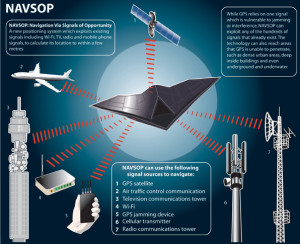With new NAVSOP poised to make an entry, will this advanced navigation system show the way out to GPS?

A major advantage of the system is its ability to function in places where GPS is unable to reach, such as dense urban areas and deep inside buildings.
After a concert at the Sevens Club on Dubai – Al Ain Road, for the type who can trace back their way to neither Al Ain nor Dubai, the GPS navigation is an everyday boon. But what if the GPS signal is weak or the navigation itself gets jammed? You still got to follow your gut to get somewhere the GPS signal can once again be picked up. This is because GPS relies upon a specific and relatively weak satellite signal that is vulnerable to disruption.
Now, BAE Systems of UK has unveiled its latest research on an advanced positioning system that exploits the hundreds of different signals that are all around us. Known as Navigation via Signals of Opportunity (NAVSOP), this new system makes use of existing transmissions such as Wi-Fi, TV, radio and mobile phone signals, to calculate the user’s location to within a few metres.
From aiding soldiers operating in remote or dense urban areas to providing improved security for Unmanned Aerial Vehicles (UAVs), which could face attempts to disrupt their guidance systems, NAVSOP has a wide range of potential military applications that now use Global Positioning Systems (GPS). By exploiting such a wide range of signals, NAVSOP is resistant to hostile interference such as jamming (a particular weakness of GPS) and spoofing, where a bogus signal tricks a device into misidentifying its location. Why, this device can even exploit the signals from GPS jammers to aid navigation at times. Why, it can even be integrated into existing positioning devices to boost the GPS.
As its required infrastructure is already in place, NAVSOP doesn’t need to build costly networks of transmitters while the hardware behind the system is already commercially available.
A major advantage of the system is its ability to function in places where GPS is unable to reach, such as dense urban areas and deep inside buildings. It is also able to work in the most remote parts of the world, such as the Arctic, by picking up signals that include Low-Earth-Orbit satellites and other civilian signals. The uses of NAVSOP could include helping fire and rescue services find their way through smoke filled buildings and enhancing the safety of lone security workers.
Among those pioneering this area of research is Dr Ramsey Faragher, a Principal Scientist from BAE Systems Advanced Technology Centre, who recently led a team that received a prestigious award from the Institute of Navigation.












